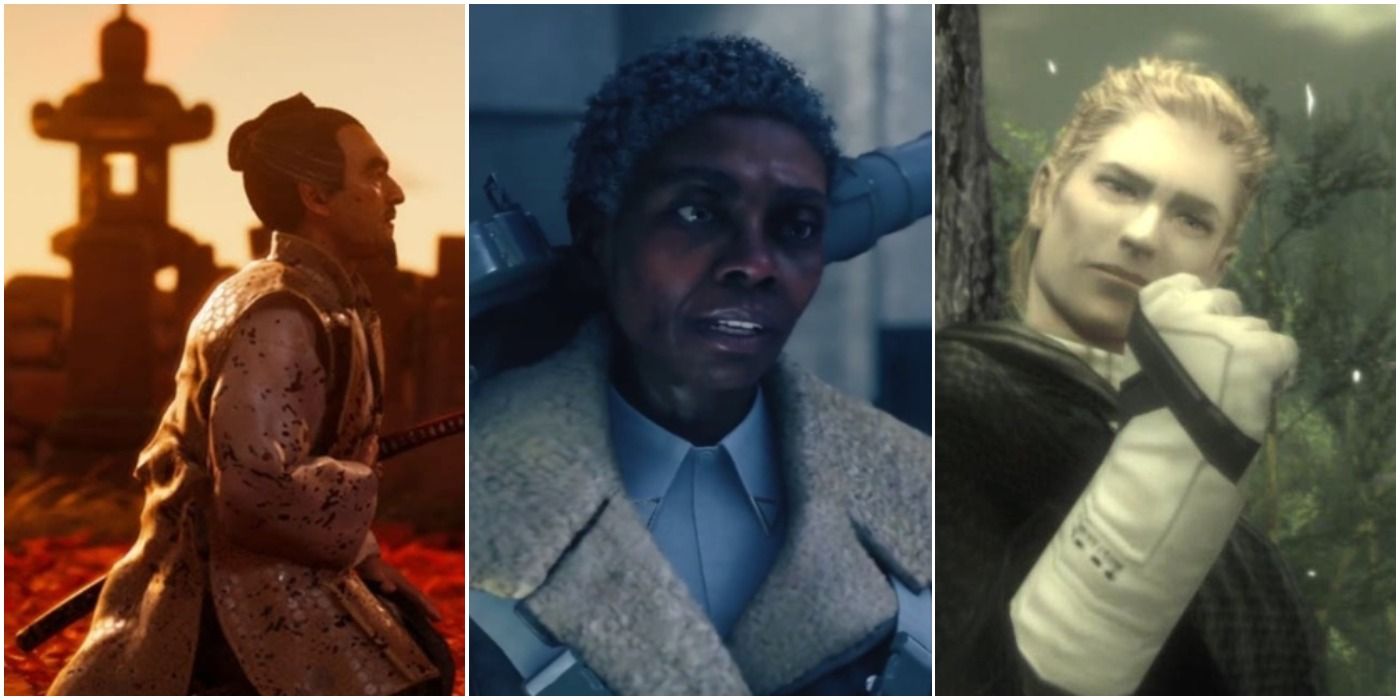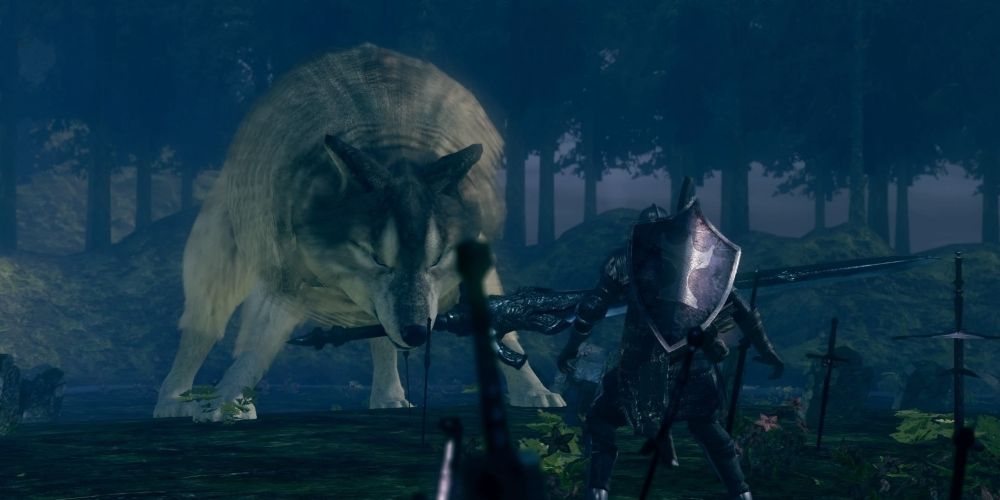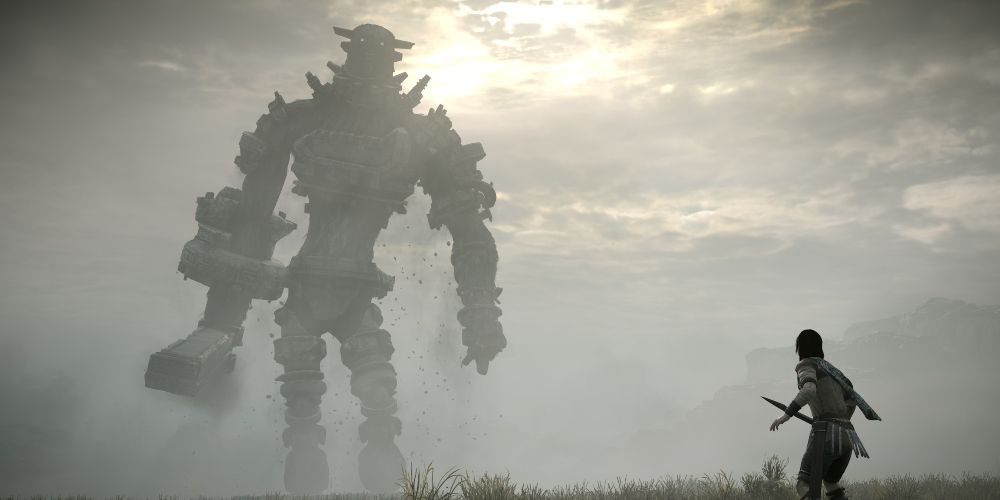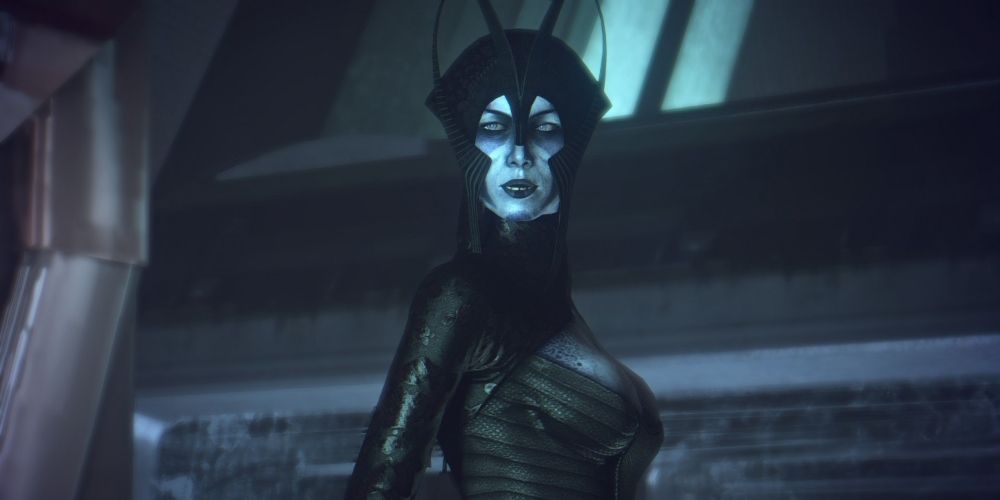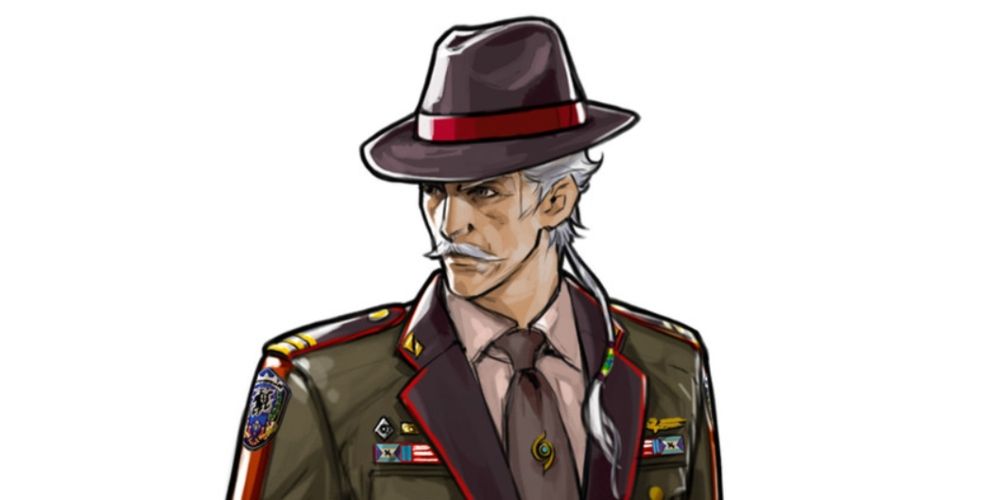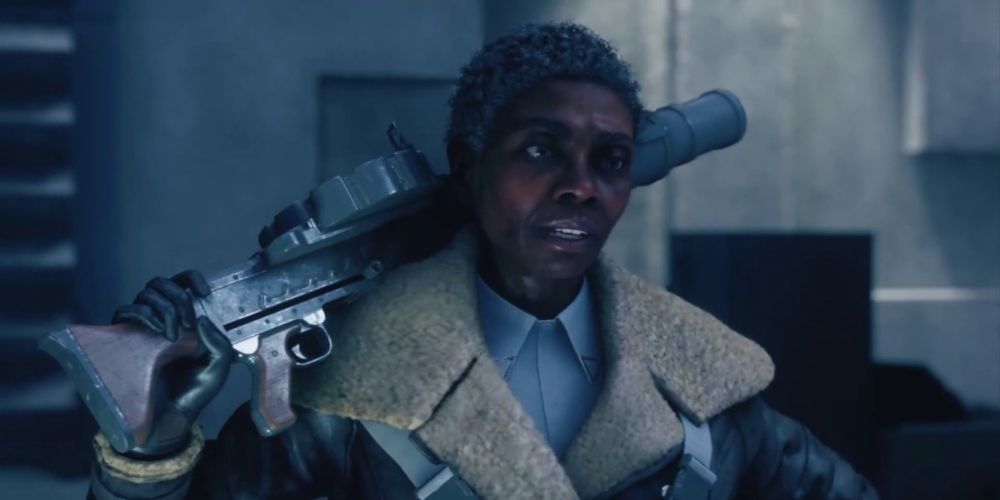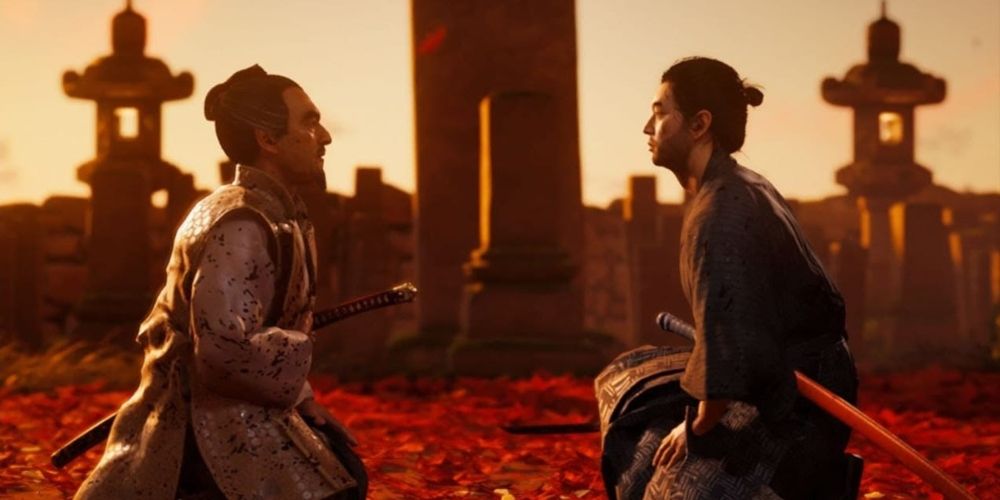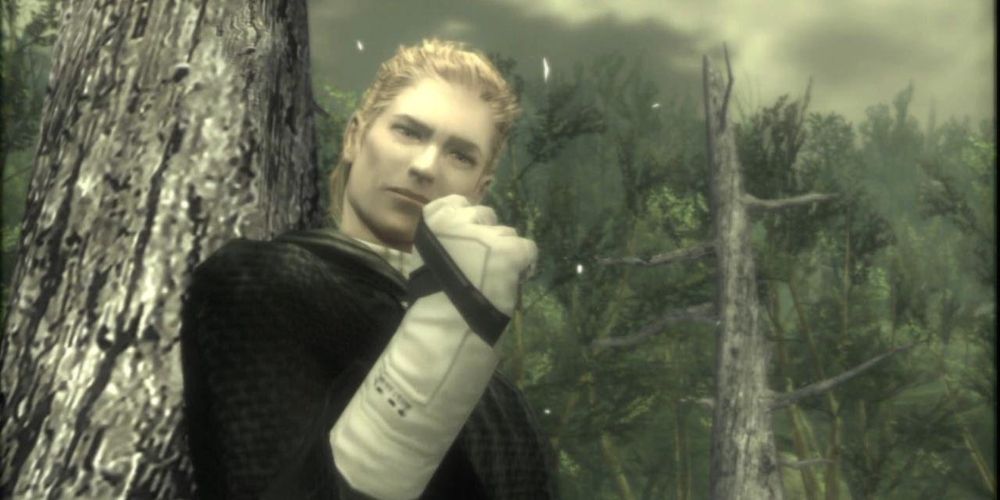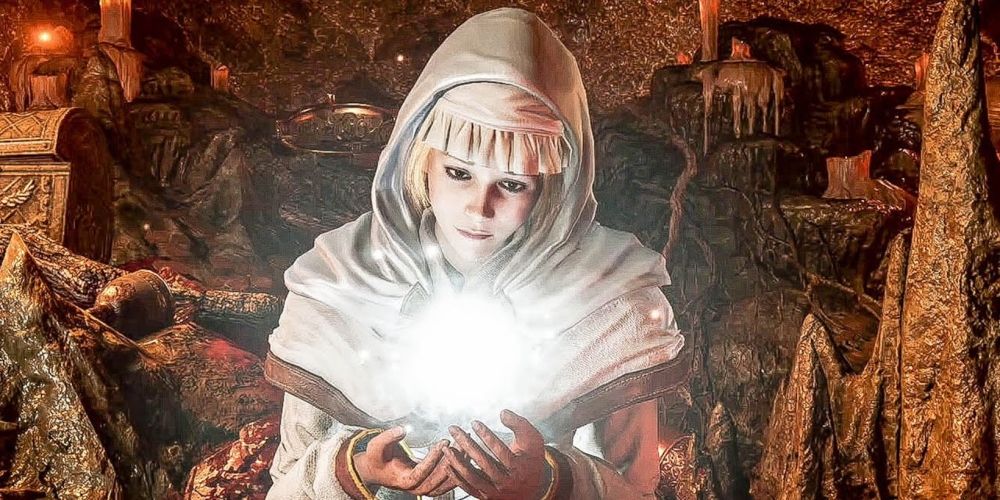Video game bosses come in all shapes and forms, but the constant is that the player typically needs to defeat them somehow. Whether through combat, puzzle-solving, or other ways, video game bosses typically exist to get outwitted by the players. Bringing down such a foe usually feels like a great achievement, particularly for more difficult foes.
Defeating a video game's boss isn't always a triumphant moment, however. Bosses can be as three-dimensional and fleshed-out as any character in a video game, and several are sympathetic. Even if their actions or goals are evil, bosses may have their reasons, or may not be to blame for some of them. For some bosses, defeating them is as much of a gut punch as the death of a more heroic character.
8 Great Grey Wolf Sif Is Simply A Loyal Pet
Animals in video games are quick to garner sympathy from the audience, particularly if they closely resemble real-world creatures. In Dark Souls, the Great Grey Wolf Sif is a mandatory boss the players must defeat to acquire the Covenant of Artorias and battle the Four Kings. However, she's a boss few players feel good about defeating.
For one thing, Sif is a beautiful and elegant creature who looks less like a fierce monstrous direwolf, and more like a loyal and appealing hound. For another, Sif is a boss who's completely non-malicious, simply seeking to protect the grave of her master, which the Chosen Undead must violate. To twist the knife further, she actually recognizes the player if they've already done the Artorias of the Abyss DLC, and shows clear reluctance in fighting them.
7 The Colossi Are Rare, Beautiful Creatures
The plot of Shadow of the Colossus is relatively straightforward. The protagonist, Wander, has to slay the sixteen Colossi in order to perform a ritual to bring back a deceased girl named Mono. The Colossi are vast, ancient creatures that are the physical embodiments of the idols scattered around the game's central temple.
Although the Colossi are huge and potentially frightening, they're each designed to be beautiful in their own ways — despite their monstrous aspects. Although the game revolves around slaying them, they are never shown doing anything harmful to anybody prior to Wander attacking them. The game outright acknowledges that the Colossi don't deserve to die, with Wander becoming more corrupted each time he kills one.
6 Matriarch Benezia Isn't In Control Of Her Actions
After revealing the truth about Saren in Mass Effect, the player is given three immediate goals. One of these is to track down the Asari Matriarch Benezia, an ancient, powerful, and respected villain who has become his ally in bringing back the genocidal Reapers. Benezia acts as the main villain of the storyline on the planet Noveria, with Shepard fighting her at the end.
During the fight, however, the player learns Benezia has little choice in her evil. She joined Saren in an attempt to turn him away from his villainous path. However, the insidious Indoctrination of the Reapers overpowered her mind, and now she serves them willingly. Benezia comes back to her senses briefly during the fight, but there's no saving her. Shepard kills her once the Indoctrination reasserts itself.
5 Forsythe Is A Good-Hearted Soldier, Killed Mercilessly
Most of the villains in the Advance Wars games are goofy and cartoonishly-evil. Typically escaping each defeat, they return to menace the player again. In the much darker Advance Wars: Days of Ruin, however, the villains are more fleshed-out, with one enemy commander making a particular impression on players.
General Forsythe is the antagonist of the game's second act, leading the Lazurian Army against Brenner's Wolves and their allied New Rubinelle Army. However, Forsythe is only fighting to keep his people alive against Rubinelle aggression, and proves to be perfectly courteous and honorable — even giving the player encouragement and advice in his final level. The far less sympathetic Waylon executes him dishonorably after his defeat, cementing the Rubinelle Army as the game's next villain.
4 Helen Marshall Is One Of The FBC's Best
Helen Marshall is one of the many senior figures of the Federal Bureau of Control that player character Jesse Faden fights alongside in Control. Although she's more curt and businesslike than some of her friendlier colleagues, she is an undeniably heroic figure doing far more than most others to save the people in the Oldest House from the Hiss attack.
In the Foundation DLC, Jesse follows Marshall into the depths of the Oldest House, where she has gone to preemptively protect it from another attack. At the climax of the DLC, however, Jesse finds Marshall possessed by the Hiss. With Marshall gone and no longer the woman she once was, Jesse is forced to kill her, clearly pained by the deed.
3 Lord Shimura Is An Honorable Man And A Family Member
In Ghost of Tsushima, Lord Shimura is one of the most important characters in the story, a samurai who is charged with protecting Tsushima from the Mongol attack, and the uncle of protagonist Jin Sakai. Throughout the game, Shimura and Jin clash over Jin's dishonorable tactics to resist the Mongols, including stealth and poison.
While Shimura is far from a perfect man — fighting to preserve the samurai dominance over the common people of Japan — he is a sympathetic and honorable figure who simply cannot accept Jin's new skills. Shimura is ordered to kill Jin to restore his honor, and they duel despite neither of them wanting to kill the other. Shimura can actually be spared, but neither ending to the fight is a happy one.
2 The Boss Is A Loyal Soldier All Along
After being introduced as a mentor and the closest thing to a mother figure Naked Snake has, the woman known as the Boss appears to turn to villainy after the prologue of Metal Gear Solid 3: Snake Eater. She defeats Naked Snake and seemingly defects to rogue Russian Colonel Volgin. Snake is charged with killing both her and Volgin to avert a war between the US and USSR.
Snake does his duty, eventually coming face-to-face with the Boss for a rematch. There, she reveals the truth: she was never a traitor, only pretending to defect as part of a grand plan by the US. However, either she or Snake needs to die and be made a scapegoat to avert war, and so they fight. Snake is reluctant to kill the Boss due to their close emotional relationship, and spends most of his life after her death attempting to make her goals a reality.
1 Lady Astraea Is A Benevolent, Self-Sacrificing Figure
To rid the world of the Old One and save Boletaria from the Colorless Fog, the player in Demon's Souls has to slay five powerful demons. Many of these are fearsome beasts, twisted heroes, or people who were monsters even in life. One, however, is cut from a different cloth entirely: Lady Astraea.
Astraea was once a traveling pilgrim who came to Boletaria's accursed Valley of Defilement to ease the suffering of those languishing there. The Colorless Fog transformed her into a demon, but she retained her good heart. As such, there's no malevolence to her when the player comes face-to-face with her, but they have to kill her to save the world. Astraea notably doesn't even fight the player, instead letting her knight Garl Vinland do so instead — and killing herself if he falls.

